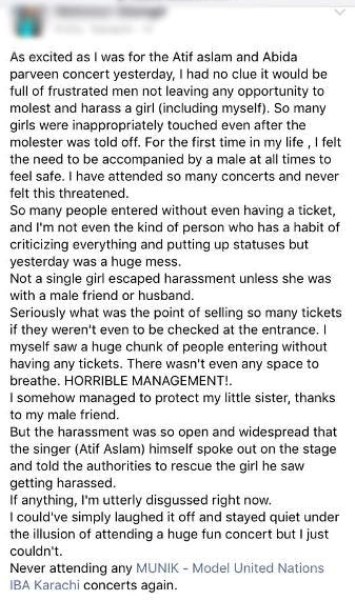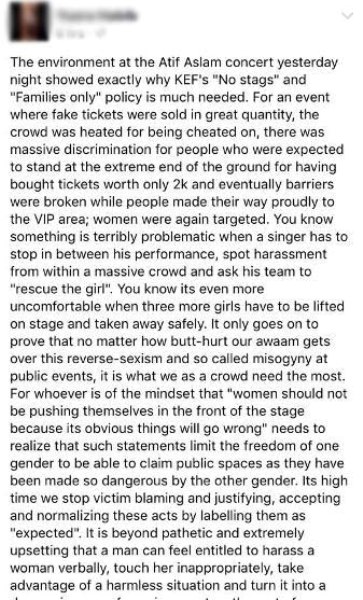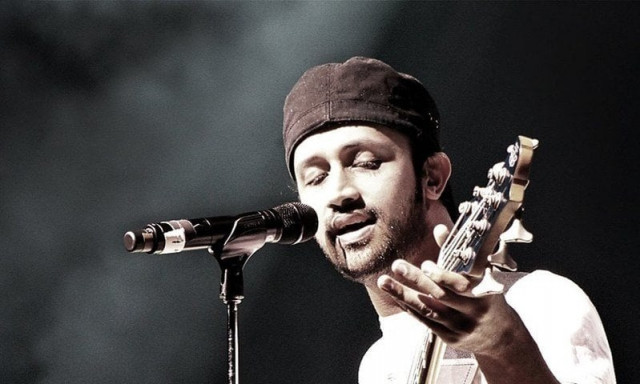I am not going to limit this to sexual harassment as I do feel a lot of people do commit sexual harassment without even realising they are doing so on a daily basis but even if we are to agree that most people in Pakistan are not actively committing rape or sexual violence – they may be creating the conditions for that sexual violence to be committed.
We all may be, deliberately or inadvertently, contributing to the creation of rape culture in Pakistan each day. By normalising or trivialising sexual violence and abuse each day with our words and actions – we have created the conditions where the news of rape does not disturb us as much as it should. We don’t even talk about it in terms of individuals anymore – we’ve come to a point where we talk about rape in terms of statistics.
Let that sink in.
We are quick to condemn India, and Indians, for their frankly perturbing statistics on rape but we do not acknowledge that the situation is not much better in Pakistan. We may not have the same statistics but they may be because a lot of sexual violence in Pakistan goes unreported over the fear of the social stigma attached to the victim.
Somehow patriarchy has managed to move the conversation from the perverse actions of sexual predators to the actions of the victim and how those contributed to that person’s rape. There is no conversation about raising better boys or educating men about the bare minimum requirements needed to be called a human being.
Instead when we hear about sexual violence – the debate questions revolve around:
What was she wearing?
Who was she with?
What time was it?
Why was she in public?
Was she with her family?
Was she with a man to protect her?
Questions which make the woman feel that in some ways she contributed to her own rape – let’s make one thing clear: No matter who she is, where she is, what she was wearing, what time it is or who she is with: a woman is never asking for it.
If you are someone who thinks women ask to be raped or they enjoy sexual violence, then you are part of the problem. If you come on television and claim women love to be abused than you are as culpable as the one who commits the actual abuse.
 Photo: Screenshot
Photo: ScreenshotThe solution to preventing violence in public spaces is not to restrict access for women to those public spaces but create better safer spaces. Karachi Eat Festival was criticised for their “families only” policy but instances like the ones at the Atif Aslam concert on Saturday show us why such policies are necessary in the country that we live in.
All men may not be rapists but if you set your male privilege aside, you can see how women feel threatened by all men considering how common instances of sexual harassment are in Pakistan.
A woman should not be made to feel like she can be assaulted any minute if she is out in public or having a good time at a concert. I hope we can all agree that any men who commit these actions are the worst kind of human beings but as men if we want to truly help create a better society there is so much more that we need to do.
Empathy demands us to see things from the perspective of the woman. It is not about being protective of your friends and family in public or hanging rapists from the streets but it is about assessing your words and actions each day to fight rape culture.
It is about realising that it is never the victim’s fault. Nobody blames a murdered person for their own murder then why do we blame the person being raped for the rape?
We only make their agony worse by using language like “izzat loot li” (respect is taken away) – a woman should not be made to feel shameful for being the victim of a crime. She should not be made to feel unchaste or unsuitable for marriage if she suffers a sexual assault.
 Photo: Screenshot
Photo: ScreenshotIt is extremely brave of women to speak about instances of sexual violence, like the assault at the Atif concert on Saturday, and they should be lauded for it. As men, the least we can do to support them is shut down any conversation of victim blaming or victim shaming we see men around us do.
Let’s fight the rape culture to create a better society for us.



COMMENTS
Comments are moderated and generally will be posted if they are on-topic and not abusive.
For more information, please see our Comments FAQ